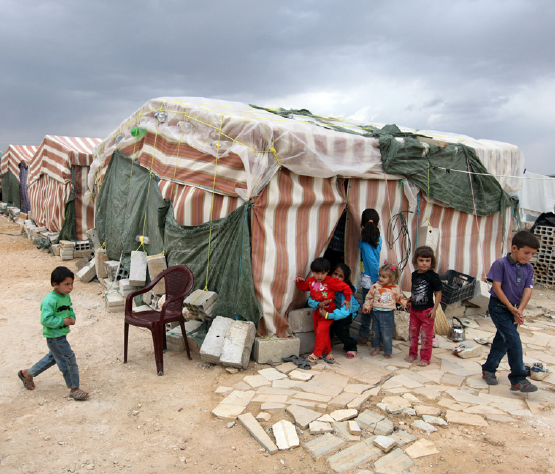The Refugee Crisis We Prefer to Change
BY SOPHIE TARAZI
When I first announced that I would be studying abroad in Amman, Jordan, the two questions I was most frequently asked were whether Jordan was safe for Americans and if all the women wore hijabs. Though I wish people wanted to know more about the Bedouin and baklava, I understand why these were the first questions to come to mind; in the U.S., stories about the Middle East are blemished by terrorists, dictators, and political Islam. Americans are aware of the Syrian Civil War, the Egyptian uprisings, and the perennial Palestinian-Israeli struggle, but few have heard of Jordan’s domestic problems, let alone can even place Jordan on the map. That’s because Jordan is a tiny country, and its key crisis doesn’t involve explosives.
Among Jordan’s troublesome neighbors are Israel, Palestine, Lebanon, and Syria. Each of these states was artificially created by Western powers within the last century and has experienced a myriad of problems as a result of both intra- and inter-state conflicts. Jordan has its fair share of domestic issues, but what it suffers from the most is the mass influx of refugees from its neighboring states. Because of the atrocities committed against them by the ever-expanding state of Israel, millions of Palestinians have fled to Jordan. The first big flight of Palestinians was a result of the ethnic cleansing program undertaken to initially create Israel in 1948, but hundreds of thousands more have crossed into Jordan in the proceeding sixty-six years in response to recurring acts of violence against them by the same nation-state. In addition to the massive influx of Palestinians, many Iraqis have fled to Jordan because of the Iraq War, and thousands of Syrians have crossed the Syrian-Jordanian border in the past few years to escape the Syrian Civil War. The result of these mass migrations has been a dramatic change in Jordan’s demographics and a difficult economic situation as it faces the demands of a rapidly increasing population.
Over the past seventy years, Jordanians have gotten used to welcoming refugees. Their country serves as a bandage, always stretching its resources to cover the consequences of foreign wars. What we can’t predict is when this bandage will break. Jordan has remained politically and economically stable compared to other Arab countries, despite being surrounded by crises. However, because nothing is predictable in this part of the world, it is possible that the next major crisis could bring about the end of Jordan’s relative stability.
As Americans, we tend to dissociate ourselves from Arabs and their problems, perhaps because they aren’t happening in our own backyards. On top of that, American stereotypes of the Arab World are carefully molded by the media, and the press does not always address the long-term problems that the Arab World faces in favor of presenting “breaking news” about the latest suicide bomber. Because of the lack of attention in the media and general apathy regarding the issue, many Americans know very little to nothing about the millions of refugees flooding into Jordan despite the fact that it is perpetuated by Western intervention (and lack of intervention) in the region.
Americans are implicated in Jordan’s refugee crisis in a variety of ways. The U.S.-Israel relationship is one of the greatest detriments the Palestinians face and makes a diplomatic and just solution to the Palestinian-Israeli crisis exceedingly difficult. Additionally, the U.S. war in Iraq was the primary force behind the flight of thousands of Iraqis from their homeland, and it can be argued that the lack of U.S. intervention in Syria has perpetuated its civil war. Further aggravating the matter, the change in U.S. foreign policy and rhetoric regarding the Middle East after September 11th caused many Americans to fear Arabs and the Arab World. This has had its most obvious effect in the way of tourism, which has drastically diminished in most—if not all—Arab countries and has deprived them of an important source of income.
Jordan’s refugee crisis is ignored largely because it is an unpleasant reminder of a number of controversial U.S. interventions in the Middle East. Unfortunately, many Americans characterize the Middle East as a region plagued by terrorism and poverty, even though more times than not these are the effects of interminable regional conflicts. When we call for peace in the Middle East, we can’t just take away the weapons and expect everything to return to normal. Instead, we need to look for solutions that resolve long-standing economic instability as well, and this means we must address the issue of the people who have been living in “temporary shelters” for decades. The thousands of refugees residing in Jordan may not be our problem right now, but securing their safety and access to basic amenities is the key to maintaining stability in the Middle East in the future.
